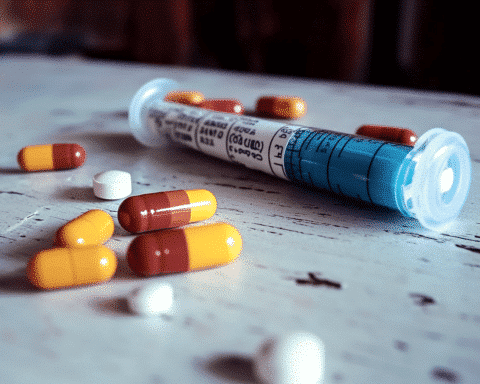Eli Lilly’s weight loss drug has made groundbreaking progress in reducing the risk of Type 2 diabetes in overweight or obese adults with prediabetes, according to new data from a long-term clinical trial. The results, which show an astounding 94% risk reduction compared to a placebo, highlight the potential for tirzepatide, the active ingredient in the company’s medications Zepbound and Mounjaro, to significantly delay the onset of diabetes.
Dramatic Reduction in Diabetes Risk
In a three-year study, Eli Lilly tested tirzepatide on over 1,000 adults with prediabetes. The results were remarkable, with participants on the highest weekly dose experiencing a 22.9% average reduction in body weight. In comparison, those taking a placebo saw only a 2.1% weight loss. Beyond weight reduction, the drug reduced the risk of developing Type 2 diabetes by an impressive 94%.
Eli Lilly CEO David Ricks emphasized the importance of these findings: “This is our fourth study this year that shows how weight loss with tirzepatide converts to health benefits. We can now add diabetes prevention to the growing list.”
The Long-Term Health Benefits of GLP-1 Drugs
The study’s results also reinforce the health advantages of GLP-1 drugs like Zepbound, which mimic hormones produced in the gut to regulate appetite and blood sugar levels. As GLP-1 medications gain popularity, Eli Lilly and Novo Nordisk have expanded their clinical research to explore other potential uses.
According to government data, over 1 in 3 Americans have prediabetes, a condition that can often be reversed through lifestyle changes like diet and exercise. The data from Eli Lilly’s study shows that tirzepatide could be a key player in preventing diabetes among those at high risk, including people with obesity.
Sustained Weight Loss and Other Health Benefits
The phase three trial also demonstrated sustained weight loss for patients taking tirzepatide over 176 weeks. However, 17 weeks after stopping the treatment, participants began to regain weight and saw an increase in the progression of diabetes. Despite this, those who stopped the drug still had an 88% lower risk of developing diabetes compared to the placebo group.
David Ricks pointed out that even when patients discontinued the drug, “a percentage of people do begin to gain weight and then…begin the advance again toward diabetes,” but noted that they don’t “snap back as if they were never on the drug.”
Side Effects and Safety Profile
Eli Lilly also shared that the safety data on tirzepatide during the trial was consistent with previous studies. The most common side effects included gastrointestinal issues such as nausea, diarrhea, constipation, and vomiting. Fortunately, these side effects were generally mild to moderate in severity.
Tirzepatide mimics two gut hormones, GLP-1 and GIP, which help suppress appetite and regulate how the body processes sugar and fat. This dual-action mechanism has made Zepbound and Mounjaro increasingly popular in diabetes treatment and weight management.
Presenting the Results
Eli Lilly plans to submit the latest findings to a peer-reviewed journal and present them at an upcoming medical conference in November. These findings follow earlier data from the same trial, SUMOUNT-1, demonstrating impressive 72-week weight loss results.
Eli Lilly’s weight loss drug, tirzepatide, shows tremendous promise for weight loss and preventing diabetes. As David Ricks summarized, “On the drug, we can keep healthy body weight down for three years and ward off diabetes.”





